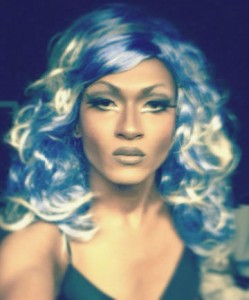The Maldives constitution may have to be amended to address issues arising from the dissolution of the ruling Progressive Coalition, opposition leader and former President Mohamed Nasheed told diplomats in Colombo.
The split between Progressive Party of Maldives (PPM) and the Jumhooree Party (JP) has resulted in a government lacking popular support and will ultimately harm the Maldivian public, he said.
Nasheed called for amending the system of governance from a presidential system to a parliamentary system. He has long argued coalitions could only work in a parliamentary system of government.
The PPM last week announced the dissolution of the ruling coalition after the two parties clashed over control of the speakership in the newly elected People’s Majlis. The vote saw a win for PPM’s Abdulla Maseeh against the JP’s Gasim Ibrahim.
Gasim had won 23.35 percent of the vote in the first round of presidential polls last year, and his backing was crucial for the PPM’s win in the second round. The PPM had gained 29.72 percent of the vote in the first round and narrowly won the election against Nasheed with 51.39 percent.
Nasheed himself required the backing of the JP and a number of smaller parties to win the presidential election of 2008. The coalition led by Nasheed’s Maldivian Democratic Party (MDP) also fell apart shortly after Nasheed assumed power.
Speaking to private broadcaster Raajje TV last week, Nasheed said he would work through the newly elected parliament to amend the constitution and facilitate a transition to a parliamentary system.
The challenges faced in implementing the system of governance dictated by the constitution indicates that the Maldives needs a parliamentary system, Nasheed said.
He said he is ready to work with leader of the PPM and former President Maumoon Abdul Gayoom as well as Gasim to change the constitution.
“It is time for the system of governance in Maldives to be changed into a parliamentary system. When we move to a parliamentary system there won’t be any need to have a cabinet,” said Nasheed.
“The cabinet is very costly, we can cut down that as well [by moving to a parliamentary system]. What I want to say to President Maumoon is to think about how the Maldives have been governed in the past and what happened during the drafting of the constitution,” he was quoted as saying.
Nasheed had raised the same issue during his presidency in July 2010, again citing difficulties in governance. At the time, Nasheed’s MDP controlled a minority in parliament while the then-opposition opposed and blocked several flagship laws.
In response, Nasheed proposed to amend the constitution to either “complete the presidential system” or move to a parliamentary system. He had declared he was ready to go for a re-election following the change if all political parties could reach an agreement on the issue.
Speaking to Minivan News in February, Nasheed said: “Coalitions work in parliamentary systems where you can actually have ministers coming out from the parliament and therefore it’s possible to come to an arrangement. But when the cabinet is not in the parliament, an alliance doesn’t necessarily work.”
“The shuffling or the portions given to different parties are given from the cabinet, and the cabinet is a very superficial layer on the government. The actual essence is the parliament where you make the laws.”
But, Ibrahim ‘Ibra’ Ismail, who was the chairman of the committee responsible for drafting the 2008 Constitution, spoke against the change today, saying the public had already voted for the presidential system in a 2007 referendum and that any change must come through public consultation rather than an agreement between political parties.
“We were unable to reach an agreement on that in 2007, so it was decided that we should go for a public referendum, to let the people decide,” Ibra said.
“The people decided on this matter directly, so I don’t think representatives can change it back. Even if they do it they should consult the public, there should be a public discussion. I don’t think changing in any other way is beneficial for the nation,” he added.
Approximately 62 percent of the public backed the presidential form of governance in 2007. At the time both the MDP and incumbent President Abdulla Yameen’s former party, the Progressive Alliance (now dissolved), supported the parliamentary system while Gayoom supported a presidential system.
While in Colombo, Nasheed met the US ambassador to the Maldives Michele J. Sison, British High Commissioner to the Maldives John Rankin, Australian High Commissioner to the Maldives Robyn Mudie and the French Ambassador to the Maldives Jean-Paul Monchau.
In addition to this he also met International Finance Corporation country manager to the Maldives Adam Sack.
